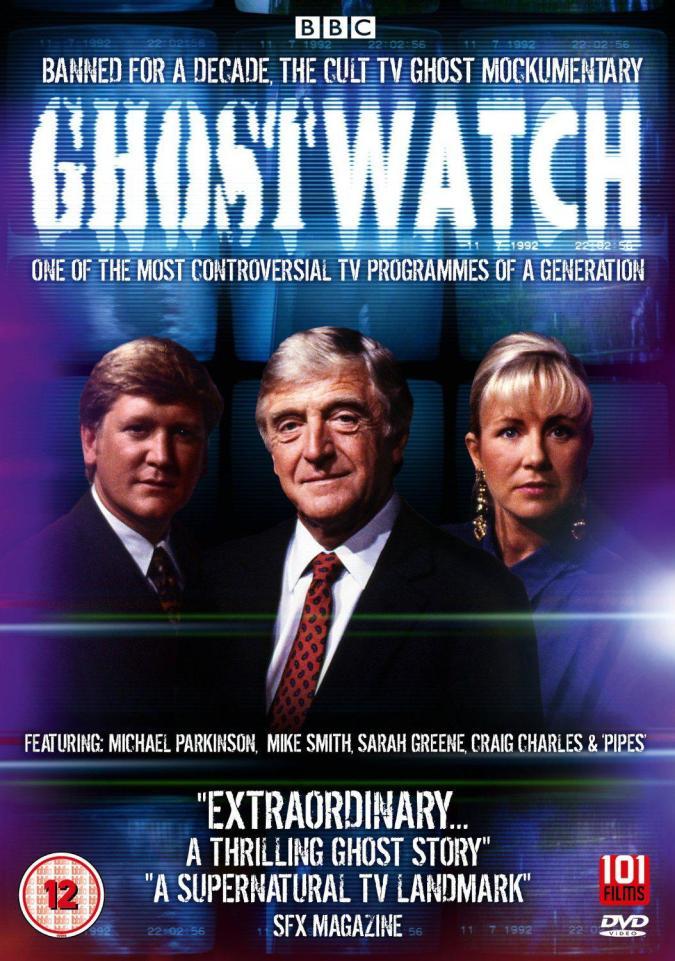Ghostwatch: BBC Halloween spoof that 'gave children PTSD' turns 25
Programme aired in 1992 was penned by a horror writer and originally meant as a six-part series

Your support helps us to tell the story
From reproductive rights to climate change to Big Tech, The Independent is on the ground when the story is developing. Whether it's investigating the financials of Elon Musk's pro-Trump PAC or producing our latest documentary, 'The A Word', which shines a light on the American women fighting for reproductive rights, we know how important it is to parse out the facts from the messaging.
At such a critical moment in US history, we need reporters on the ground. Your donation allows us to keep sending journalists to speak to both sides of the story.
The Independent is trusted by Americans across the entire political spectrum. And unlike many other quality news outlets, we choose not to lock Americans out of our reporting and analysis with paywalls. We believe quality journalism should be available to everyone, paid for by those who can afford it.
Your support makes all the difference.The BBC is marking the 25th anniversary of one of its most controversial TV shows.
Billed as a spoof, Ghostwatch still duped thousands with its fake investigation into paranormal activity, and in one case led to the suicide of a teenage boy.
On Halloween in 1992, when Saturday night TV was at a peak, Ghostwatch managed to be the most-talked about show of the night.
It detailed a supposedly "live" investigation into strange goings-on at a family home in north-west London.
Penned by horror writer Stephen Volk, who had originally thought of it as a six-part drama but was instead to write it as a 90 minute ghost story, Ghostwatch went through several rewrites before executives were satisfied.
"They didn't get it when they read it, why it was written in this peculiar way," Volk told the BBC. "They didn't understand how it was going to work."
Michael Parkinson was asked to present the show with popular children's TV host Sarah Greene, and her husband Mike Smith, who worked in TV and radio. Craig Charles worked as the "roving reporter" speaking to the family who were supposedly haunted.

A feature in the Radio Times explained it was a drama, but not everyone read the magazine. So when Ghostwatch aired at 9.25pm, thousands of UK viewers were led to believe that a team of researchers had spent the last 10 months investigation paranormal activity at the Early family home.
By the end of the show, Volk told the BBC that the switchboard had been "jammed" with irate viewers trying to get through to complain.
"That was a bit of a 'gulp' moment," he said, and explained that many viewers had been traumatised by what they thought they had just witnessed. "I think three women who were pregnant went into labour that evening."
Five days after the show aired, 18-year-old Martin Denham, who had learning difficulties, took his own life.
His parents said he had been "hypnotised and obsessed" with the programme and was convinced their own home had ghosts.
That night he had insisted on keeping his bedroom light on, which he had never done before, and was concerned about noise coming from central heating pips in the house - something featured in the Ghostwatch programme.
They complained to the Broadcasting Standards Commission, arguing that Ghostwatch had caused their son's death, but a coroner made no reference to the programme when he announced his verdict that Denham had taken his own life.
The BSC found that the BBC "had a duty to do more than simply hint at the deception it was practising on the audience. In Ghostwatch there was a deliberate attempt to cultivate a sense of menace."
A 1994 study in the British Medical Journal later reported several cases of post-traumatic stress in children who had watched the programme.
In an interview more than 20 years later, Parkinson said no one thought they were creating something that would become one of TV's most infamous programmes.
"It was a simple ghost story based on a fairly ordinary premise that there's a show on television and things start to go wrong," he said. "It was only when I saw it back that I realised it had a certain kind of power."
The BBC apologised and never aired the show again on UK television. The programme remained officially unreleased until a DVD version in 2002.
It can currently be watched on horror and supernatural-themed streaming service Shudder.
Join our commenting forum
Join thought-provoking conversations, follow other Independent readers and see their replies
Comments